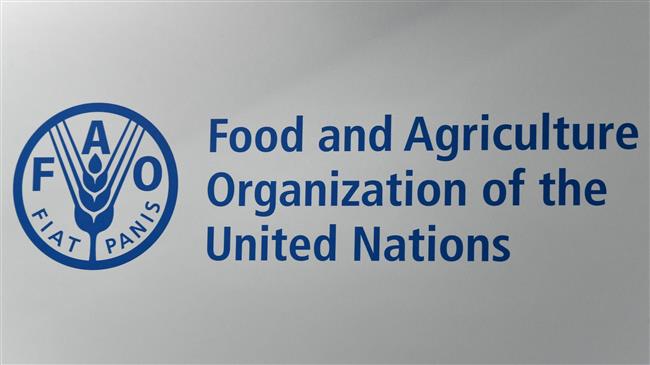Post-Brexit Food security plan biggest shake-up in 40 years
The UK’s food security shall be assessed on a regular basis by parliament to ensure minimal disruption to supplies after the country leaves the EU and while new trade deals are sought.
The commitment will be part of the biggest shakeup of British agriculture in 40 years and requires a regular report to MPs outlining supply sources and household expenditure on food, as well as consumer confidence in food safety.
The proposed revision reflects concerns over potential disruptions, post-Brexit, since 30% of the food consumed in the UK originates in the EU, and another 20% in non-EU countries. With half of the UK's food being imported, any change to its trading arrangements could affect its food supply.

The Food and Agriculture Organization of the United Nations, or FAO, identified the four pillars of food security as availability, access, utilization, and stability.
Food security, as defined by the United Nations' Committee on World Food Security, means that all people, at all times, have physical, social, and economic access to sufficient, safe, and nutritious food that meets their food preferences and dietary needs for an active and healthy life.
The bill promises Greater emphasis on the soil, which is at risk from overuse, erosion and nutrient loss. Under the proposed changes farmers shall receive help with the upkeep of healthy soils, as well as improvements to the tracing of livestock movements between farms. There will be powers to regulate fertiliser use and organic farming after Brexit.

Absent, however, from the bill is a binding commitment to prevent trade deals which would permit the import of food produced to lower standards than those to which British farmers must comply. This has been a key demand of farmers anxious that after Brexit they will be undercut by cheap imports from the US and Asia, with lower food safety and animal welfare regulations.
Theresa Villiers, secretary of state for the environment, food and rural affairs, called the revised bill “one of the most important environmental reforms for many years” and said it would protect nature and biodiversity and help meet goals on the climate crisis.
“[This] will transform British farming, enabling a balance between food production and the environment which will safeguard our countryside and farming communities for the future,” she said. “We will move away from the EU’s bureaucratic common agricultural policy and towards a fairer system which rewards our hard-working farmers for delivering public goods, celebrating their world-leading environmental work and innovative, modern, approach to food production.”
At its core the agriculture bill is a shift away from the EU system, in which farmers are entitled to subsidies based on the amount of land they farm, to a process whereby farmers are paid for the public goods provided, including clean water, clean air, healthy soils and habitats for wildlife.

A seven-year transition period is provisioned for farmers to move from the current regulations under CAP, the EU’s common agricultural policy, to a system of environmental land management contracts. Under these contracts, individual farmers will agree with the government a tailor-made set of goals with details on the measures they will take to manage their land and protect the environment.
For the duration of the current parliament, subsidies at the same rate as the EU – about £3bn a year – will be paid to farmers from taxpayer funds, but some of the richest farmers who benefit most from the system can expect to lose out when the new contracts are phased in.
Farming leaders were disappointed at the lack of a legal commitment to ensure trade deals did not allow entry to cheap, low quality, imports.
“We want to ensure all our food comes from countries that meet our standards,” Theresa Villiers told an audience of farmers on Wednesday. “That is what the powerful tools of the WTO do, they enable us to impose tariffs where we believe products do not meet our high standards.”
The surprising suggestion, which would be highly controversial with any potential trade partners and could provoke a trade war, followed an admission by Villiers that farming would be a key component of any post-Brexit trade deal, and that the UK would face heavy bargaining from potential trade partners.
“Absolutely, there will be pressure on agriculture [in trade negotiations], there always is,” she said. “Agriculture is always the last chapter to close on a trade deal.”
But she vowed to uphold UK standards. “We put in our manifesto our commitment to our standards of food safety and food security, animal welfare and the environment,” she said. “That’s what we will put on the table.”
Farmers were sceptical of her stance, however. After her speech at the Oxford Farming Conference, the hundreds of participants were asked to raise their hands if they were convinced that she would in fact protect their interests against trade partners, including the US. No hands were raised.

Minette Batters, president of the National Farmers’ Union, said: “Farmers across the country still want to see legislation underpinning the government’s assurances that they will not allow the imports of food produced to standards that would be illegal here through future trade deals. We will continue to press the government to introduce a standards commission as a matter of priority to oversee and advise on future food trade policy and negotiations.”
Organic farmers were also concerned, saying the bill did not go far enough in supporting farmers to tackle climate and ecological emergencies.
Gareth Morgan, of the Soil Association, said: “Much more is necessary to bring the radical changes our farming sector needs. Small tweaks to the status quo will not suffice. It is disappointing that the bill still does not commit to support farmers to adopt nature friendly agro-ecological farming, like organic, or environmental action across the whole farm, rather than in small areas. Nor does it signal support to enable the radical shift away from artificial fertiliser and pesticides needed to restore nature and soils capable of storing carbon.”
Rob Percival, head of food and health policy at the Soil Association, said: “Villiers’s suggestion that tariffs could be placed on imports that don’t meet UK standards suggests the government is looking for ways to support UK farming, but such piecemeal measures need to be part of a coherent trade policy, which we are yet to see. This policy and the ensuing legislation must ensure non-regression on environment, food and farming standards, and ensure the UK can continue to raise the bar in response to the climate and nature emergency.”
How soil offers hope for the climate crisis
The specific attention paid to soils was welcome, but more detail would be needed on how to enact measures to protect soil health, said Matthew Orman, director of the Sustainable Soils Alliance. “The commitment for all soils to be sustainably managed by 2030 is now 10 years old. For this to be achieved, an ambitious strategy linking all the policy mechanisms – education, regulation, assessment and incentivisation – with clear milestones for delivery, is urgently needed.”
Vicki Hird, farm campaign coordinator at Sustain, an NGO coalition, pointed to new provisions in the bill to improve oversight of the supply chain. Under these changes all sellers of agricultural produce will qualify for protection from abuse by business purchasers, which she said would help drive out unfair practices and protect farmers and could also aid reduction of food waste.
Iran knows where Netanyahu convenes his meetings: Ex-IRGC chief
‘Law of jungle’: China says Israeli-US aggression against Iran must stop
Iran says committed to regional security; retaliatory attacks only target Israel, US assets
'Blatant war crime': Iran denounces US-Israel strikes on Gandhi hospital in Tehran
IRGC spox: 650 casualties for US military in two days as Iran missiles force aircraft carrier to fle
Tehran warns of false-flag operations, says Israel ‘undoubtedly’ seeking to widen war
New wave of attacks devastates key US base in Bahrain as Iran strikes back
Melania Trump chairs UN children's meeting as Iran buries kids killed in US-Israeli attack










 This makes it easy to access the Press TV website
This makes it easy to access the Press TV website